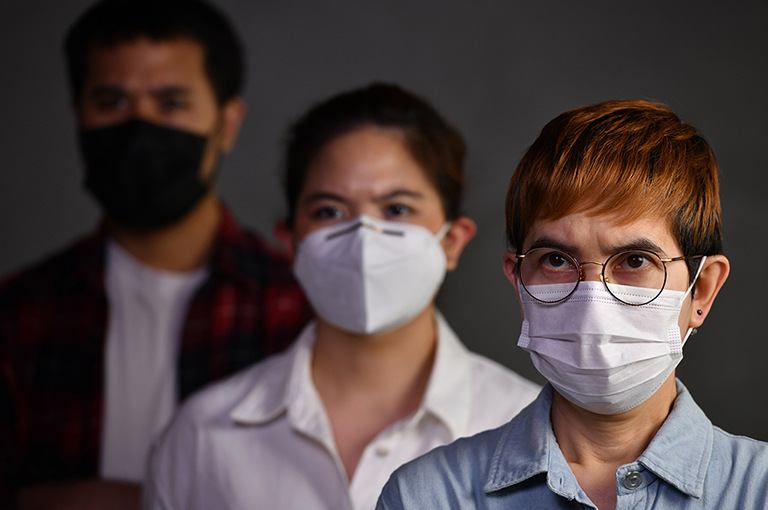New coronavirus’ prevention: what the dentist needs to know

The Covid-19 pandemic caused many health professionals to readjust their prevention habits against the new coronavirus. This is because, without preventive care, in addition to the risk of becoming contaminated, they can become channels for the transmission of the disease, especially from now on, a moment of loosening of social isolation measures and resumption of economic activities. In this post, we have gathered what dentists must do, during care, to protect themselves and patients from contamination. Read on!
Pre-consultation care
The first dental care must take place even before the consultation. As soon as the patient gets in touch asking for assistance, it is important to check if he has any of the symptoms of Covid-19. The main symptoms of the disease are: fever, tiredness, body pain, cough and difficulty breathing. If the answer is yes to any of the questions, cancel the appointment and advise to seek medical help. Otherwise, make sure that the patient's occurrence is urgent, and that he cannot wait until the end of the seclusion period for care.
For the prevention of coronavirus, the ADA (American Dental Association) classified the cases considered urgent and elective during the pandemic, and you can use the criteria as a basis for your office. Check it out below:
Urgent cases
- Pulpitis
- Pericoronitis
- Postoperative surgical osteitis or dry cavity dressing change
- Abscess or localized bacterial infection, resulting in localized pain and swelling
- Tooth fracture resulting in pain or trauma to soft tissues
- Dental trauma with avulsion / dislocation
- Making temporary restoration in case the restoration is lost, broken or is causing gingival irritation
- Extensive caries or defective restorations that cause pain
- Removing sutures
- Denture adjustments in patients with radiation / oncology
- Denture adjustments or repairs when masticatory function is impaired
- Replacing temporary filling in endodontic access openings in patients with pain
- Cutting or adjusting a wire or orthodontic appliances that perforate or ulcerate the oral mucosa
Elective cases
- Initial dental or maintenance exam
- Routine radiographs
- Dental prophylaxis
- Routine periodontal therapy
- Orthodontic procedures other than those for treating acute problems (for example, pain, infection, trauma)
- Extraction of asymptomatic teeth
- Restorative dentistry, including treatment of asymptomatic carious lesions
- Aesthetic dental procedures
Source: Amib - Brazilian Intensive Care Association.
Even with the pre-consultation by phone, check the patient on the day of the appointment to make sure he is not infected. Conduct an interview about the symptoms again, and this time also take your temperature. If you have any symptoms, or the temperature is above 37.8º, cancel the appointment and refer the patient to the health services.
Assuming that there is an extreme situation in which the patient has symptoms of Covid-19 and still needs urgent care, it is up to the professional to assess whether or not to perform the procedure. If you decide to attend the patient, use the necessary PPE and perform the disinfection procedures throughout the office. After consultation, the recommendation is to cancel all upcoming appointments and remain in quarantine, avoiding becoming a channel of contagion.
Care during consultation
To maintain biosafety in Dentistry, it is necessary that you strictly follow all the protocols indicated by the health agencies and Anvisa: the use of PPE and the immunization and hygiene before and after the consultation.
The PPE indicated by Anvisa are: goggles or face shield, mask, disposable cap, long-sleeved waterproof apron and procedure gloves.
Before starting the consultation, clean the patient's mouth by brushing and / or rinsing with 1% hydrogen peroxide before each appointment. Chlorhexidine is not indicated as it is ineffective against the new coronavirus. In addition, as it is transmitted by air, whenever possible, cover the patient's mouth with rubber dikes and avoid ultrasonic devices to prevent the emission of aerosols. Finally, under no circumstances reuse materials in more than one consultation. All must be cleaned, disinfected and sterilized. Pass on the instructions to the entire team, whether they are office assistants, secretaries or cleaning professionals.
Biosafety at reception
For prevention in Dentistry, it is extremely important that the office is adapted to receive patients during the pandemic. At reception, there can be no agglomerations, so limit the number of patients present.
Attach notices so that people keep a distance of one meter between them, and so that they do not touch their mouth, nose or eyes. Provide 70% alcohol gel bottles or dispensers to patients to perform hand hygiene.
In addition, perform disinfection of common areas and objects in the office, such as the bathroom, reception, door handles and chairs. The most effective products for this are 0.1% sodium hypochlorite, 0.5% hydrogen peroxide or 70% alcohol.
Being attentive to the prevention of the new coronavirus is a duty of every dentist, especially during this moment of loosening social isolation and resuming economic activities. Therefore, double your care in the office and prevent the disease from spreading. To learn more about these and other Anvisa recommendations, read Technical Note 04/2020 in full!
Source: Blog Surya Dental. Available at: https://blog.suryadental.com.br/prevencao-coronavirus/. Access on: 07/21/2020.
Image: amenic181, de envatoelements
